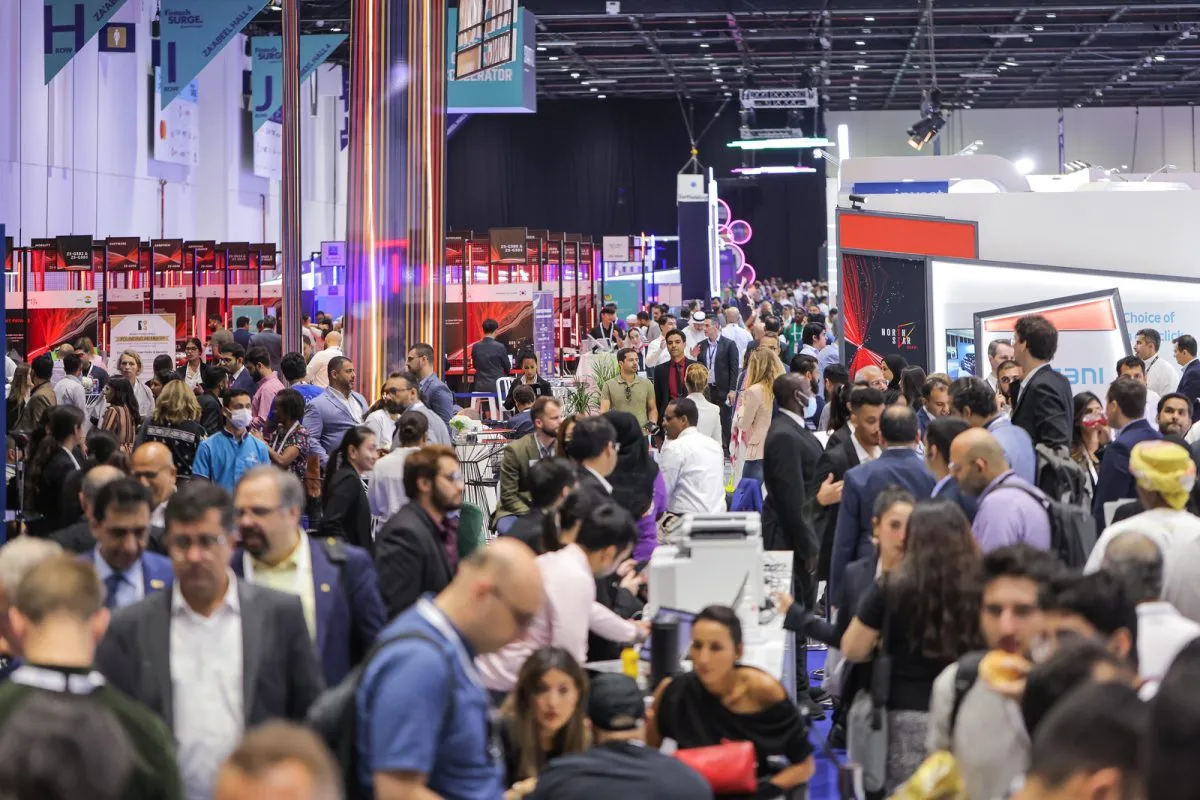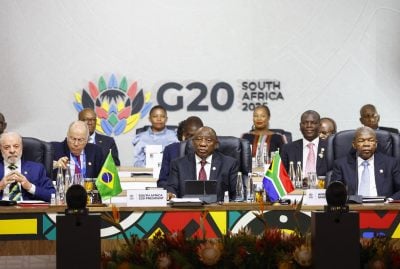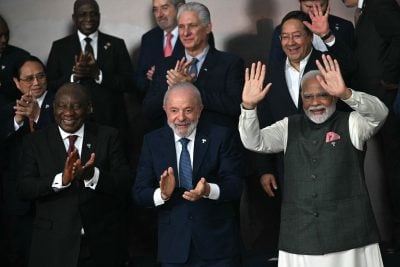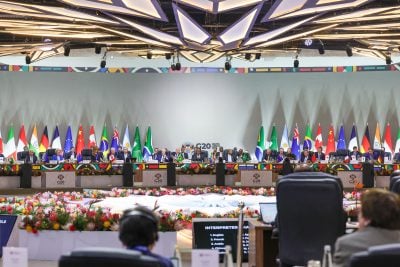“We are having about 50 investor meetings in only four days,” says Sachin Hanwate, the managing director of Agrosahas, an agri-processing business operating in Uganda. Founded in 2020 during the Covid-19 pandemic, Agrosahas initially began as a trading company before evolving into organic farming, specialising in maize, soya beans, and sunflower products.
Hanwate set up his venture with $60,000 in savings accumulated over 12 years of hard work. Now, he is at the GITEX tech show in Dubai with the primary goal of showcasing the latest developments in his business, particularly the integration of technology, including AI, to empower the farmers he collaborates with.
“My biggest challenge is that I lack working capital,” he explains. “Here in Dubai, we are looking to raise around $3.5m to scale up. Currently, we work with 10,000 farmers in Uganda, and with that capital infusion we aim to reach half a million farmers across East Africa.”
At GITEX – billed as the biggest tech show in 2023 –African startups have seized the opportunity to engage with international investors, demonstrating their vision for technology and their thirst for capital. The show welcomed approximately 35,700 visitors from Africa last year, constituting roughly 21% of its overall audience, according to figures published by the Dubai World Trade Centre, the organiser of the event.
But while startups like Agrosahas are looking to raise millions for expansion, others have come in pursuit of more modest investments at the pre-seed stage, showcasing the diverse range of entrepreneurial needs emanating from the continent.
Pitching their visions
“I prepared a lot before I came here,” says Elias Tadesse, COO of Blue Health Ethiopia, a health tech company providing a digital platform for ambulances to connect in case of accidents.
Tadesse is looking to raise approximately $270,000 at the pre-seed stage. Last June, he attended the GITEX in Morocco and had high expectations for the tech show’s global edition in Dubai.
“So far, I have had a few meetings with different investors using the GITEX plus app they gave us,” he says. The Dubai World Trade Centre has equipped entrepreneurs showcasing their products with a mobile app, facilitating connections with registered potential investors attending the event. Hence, entrepreneurs find themselves busy, attending meeting after meeting and pitching their ideas to VCs who mainly come from Asia, the Middle East, and Europe. Whether or not this will pay off will only be seen in a few months.
“Our team is here to meet partners, potential customers, and investors,” says Wael Noufal, the CEO of Blink, an Egypt-based mobility road assistance startup. “Today, I’ve pitched to around 10 investors,” he tirelessly adds. Noufal is looking to raise $1m after already securing $270,000 in funding back in November 2021. His plans to expand from Egypt into Gulf countries make the event in Dubai a valuable platform to connect with future clients, he argues.
Africa’s limited representation
Despite the enthusiasm and potential, the representation of African startups at GITEX remains somewhat limited. While North African startups have a notable presence due to their linguistic linkage with the UAE, there were only a handful of startups from other regions, and none from Francophone Africa.
Notably absent were well-known tech companies such as Wave in Senegal or Jumia in Nigeria. The only African unicorn present – and the highest valued – was Nigerian fintech company Flutterwave, although with only a small exhibition stand and team. The Nigerian Communication Commission (NCC), as well as a dozen startups brought by Lagos state, were also exhibiting in the main event halls.
But beyond startups, there was also a conspicuous lack of digital companies from Africa, with most large businesses represented by a handful of outsourcing firms from Ethiopia and Uganda hoping to connect with European and American tech corporations.
The limited presence of African tech champions may be attributed to the introduction of GITEX Africa last June in Morocco, offering companies an alternative platform, located on the continent, to exhibit their products and network.
Challenging funding landscape
Another contributing factor to the restricted African presence is the funding landscape. Startups across the African continent raised just over half a billion dollars in the third quarter of 2023, marking a drop to levels not seen since the final quarter of 2020, according to the data gathering platform Africa The Big Deal.
While GITEX is working hard to become an important platform for African startups, the event this year is also a reflection of the challenges the continent’s tech scene faces. As the calendar turns to 2024, the second edition of GITEX Africa, scheduled to take place in Morocco from 8-10 May, holds the promise of a more significant sub-Sahara African tech presence.
Want to continue reading? Subscribe today.
You've read all your free articles for this month! Subscribe now to enjoy full access to our content.
Digital Monthly
£8.00 / month
Receive full unlimited access to our articles, opinions, podcasts and more.
Digital Yearly
£70.00 / year
Our best value offer - save £26 and gain access to all of our digital content for an entire year!
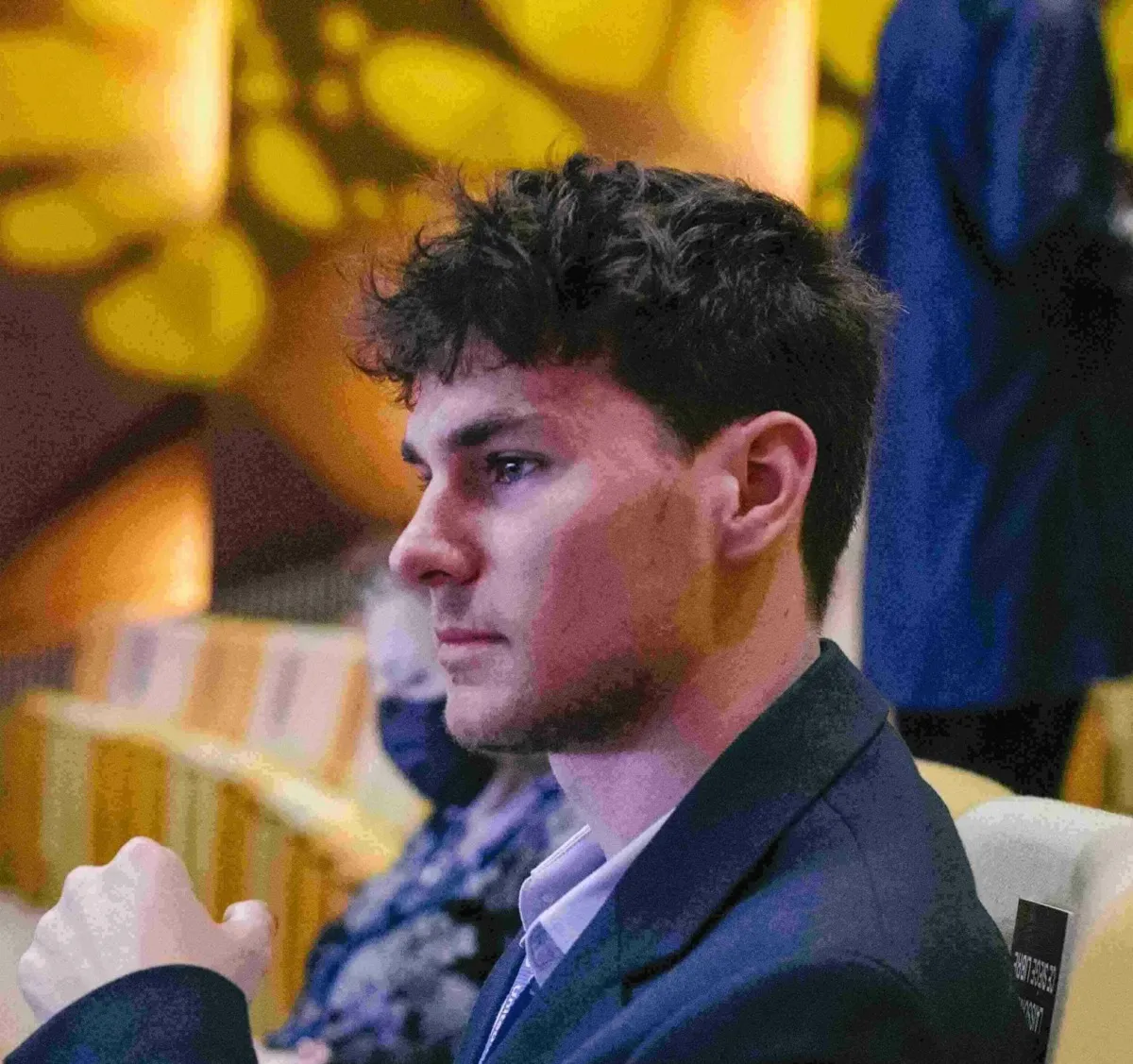
 Sign in with Google
Sign in with Google 